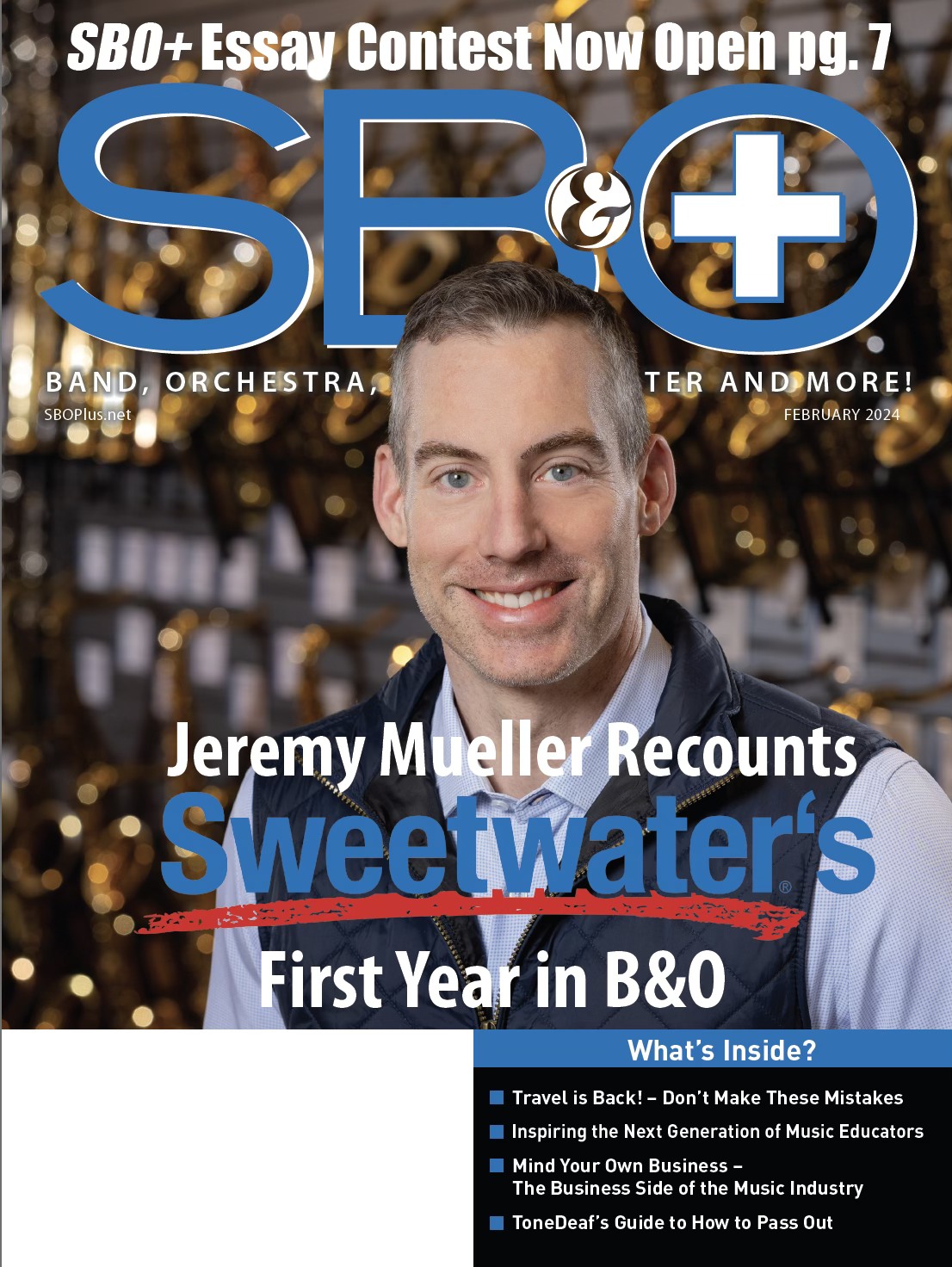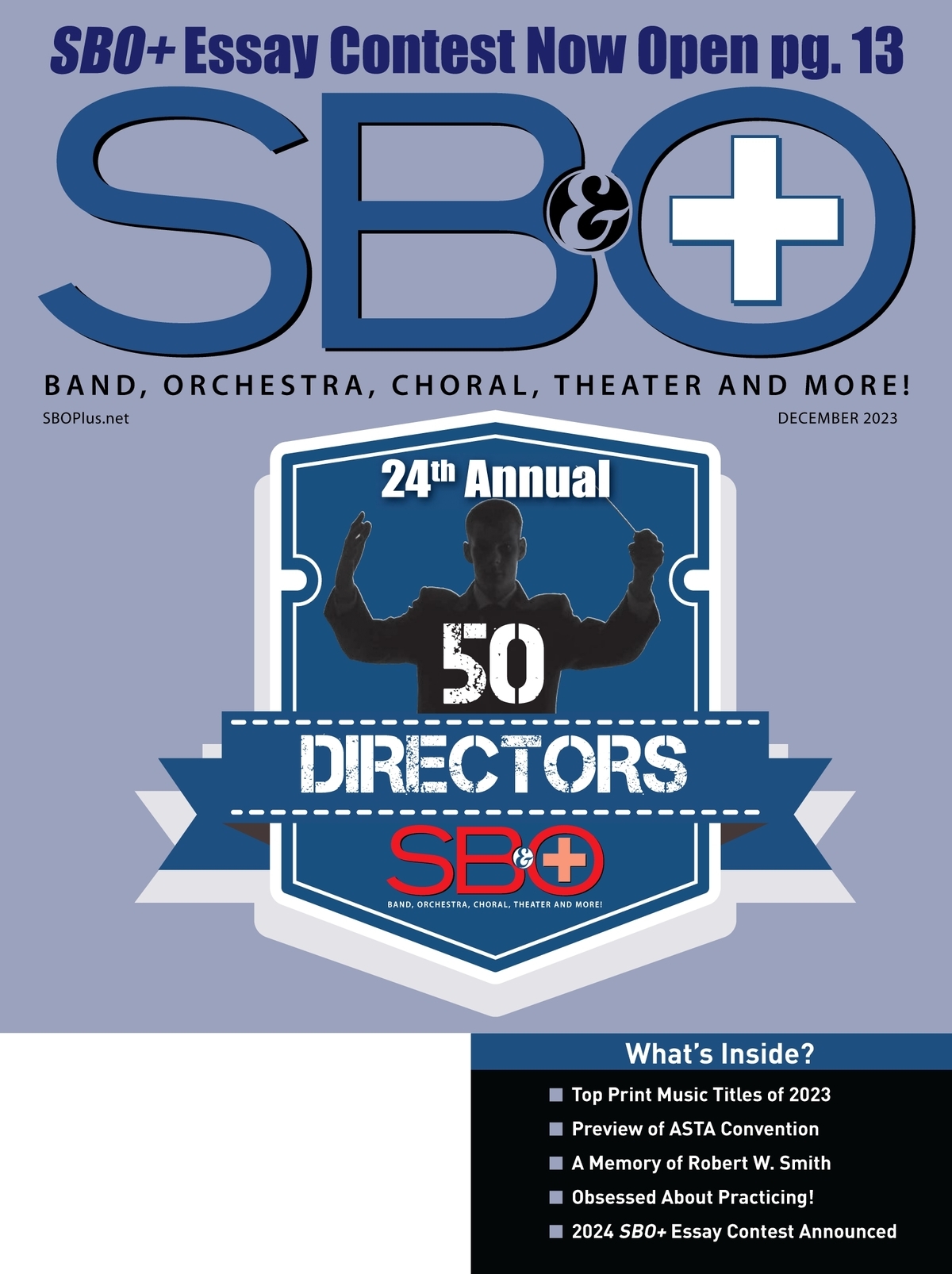EDUCATORS SUBSCRIBE FOR AS LOW AS $0.00! CLICK HERE!
 I believe it is very important for our students to use music to help the sick and the elderly. I am a firm believer in Music Therapy programs at universities.
I believe it is very important for our students to use music to help the sick and the elderly. I am a firm believer in Music Therapy programs at universities.
Every year in Southern Illinois, I do a nursing home tour called “Operation Give Hope.” I am always amazed by the difference I see in the residents before I perform and after I perform. Besides just uplifting people’s spirits, there seems to be deeper effects that music has that might be explained by science. I decided to do some research to dig up some the justification that science gives for bringing music and/or participation to the elderly and sick.
Here are some great reasons to encourage your students to set course on this very challenging yet rewarding journey of music therapy.
1) Playing music reduces stress and reverses the impact that stress has on the body. “It has a unique link to your emotions, so it can be an extremely effective stress management tool. Listening to music can have a tremendously relaxing effect on our minds and bodies.” (psychcentral.com)
2) Music affects mental health and awakens parts of the brain that have been dormant or affected by disease. It can also improve psychological wellbeing and alertness. “Advanced Alzheimer patients lose their ability to have interactive conversations with others and eventually stop speaking completely. But music therapy has been very successful at getting through to patients where nothing else has.” (www.awaken.com)
3) Music sharpens the senses such as hearing, vision, and communication that can deteriorate in old age. “As people get older, for example, we know their reaction times get slower. So, if we know that playing a musical instrument increases reaction times, then maybe playing a musical instrument will be helpful for them.” (Simon Landry, University of Montreal)
4) Music relaxes the heart rate and lowers blood pressure. In scientific studies, it has been shown that music positively effects vital signs of not just the elderly, but all people. Classical music tends to have the most positive effect out of all genres. “Music can reduce blood pressure, depending on the tempo. A new study reported in Heart, a British Medical Journal publication, has shown that listening to fast music increases blood pressure, whereas listening to slower music has the opposite effect.” (www.medscape.com)
5) Music helps create social networks and platforms for communication with the elderly. As people get older, they tend to be less socially interactive. Music provides a way and a reason for the elderly to bond and spend time with each other. When I perform my nursing home tour, it is so positive to see them interacting with each other and enhancing the sense of community. “The arts also contribute to communicating, building sense of identity, preserving or restoring social capital, and strengthening social networks in communities.” (National Endowment for the Arts)
6) Music counteracts the effects of aging and releases positive endorphins. “When we satisfy our desire to eat, sleep, or reproduce, our brain releases dopamine-the ‘feel good’ neurochemical involved when we experience pleasure and reward. Turns out this same chemical is released when listening to music.” (psychologytoday.com)
7) Music keeps your ears young and helps improve hearing. “Researchers in Toronto are beginning to investigate potential connections between musical understanding and the ways in which our brain distinguishes sound.” (yourhearinghealth.com)
8) Music helps reduce anger. There is no better way to vent frustrations than either listening to or playing music. It is a wonderful outlet for negative energy. “Music has been shown to have many positive effects on a person’s well-being. Neuroscientists have found that, by stimulating hits of dopamine, music can actually heighten positive emotion in the reward centers of a person’s brain.” (thevault.musicarts.com)
9) Music reduces depression. “Music can lift us out of depression or move us to tears-it is a remedy, a tonic, orange juice for the ear. But for many of my neurological patients, music is even more-it can provide access, even when no medication can, to movement, to speech, to life. For them, music is not a luxury, but a necessity.” (Oliver Sacks).
10) Music helps Parkinson’s patients move more steadily. “The music therapist explores various rhythmic patterns or musical styles with the patient to establish which patterns will help with walking, balance, and movement in general.” (American Parkinson Disease Association).
11) Music helps cancer patients. “Cancer subjects who participated in a clinical trial using Health Rhythms protocol showed an increase in natural killer cell activity and an enhanced immune system. While this does not indicate a cure for cancer, such results may be of benefit for those facing this disease.” (Bittman, Berk, Felten, Westengard, Simonton, Pappas, Ninehouser, 2001, Alternative Therapies, vol. 7, no.1)
Encourage your students to use music not just for entertainment, but to help heal people and make a positive difference in society. I had written a recent article about Scott Stewart, the former director of the Madison Scouts Drum and Bugle Corps and DCI Hall of Famer. Scott also has a quote regarding this topic when he took our group to perform at a nursing home.
He said, “Most of the time you perform for people who want to hear you play. Today, you are performing for people who need to hear you play.”
In 2016, The Huffington Post called Kevin Lucas “the most talented percussionist since Lionel Hampton, Ginger Baker, and Tito Puente.” He has been nominated for 38 music industry awards for his Echoes in the Sand album, and he won the 2016 American Songwriting Awards. Lucas performed with the Madison Scouts Drum and Bugle Corps from 1992-1994, and won the DCI Midwest Individuals in 1994 for keyboard percussion.






